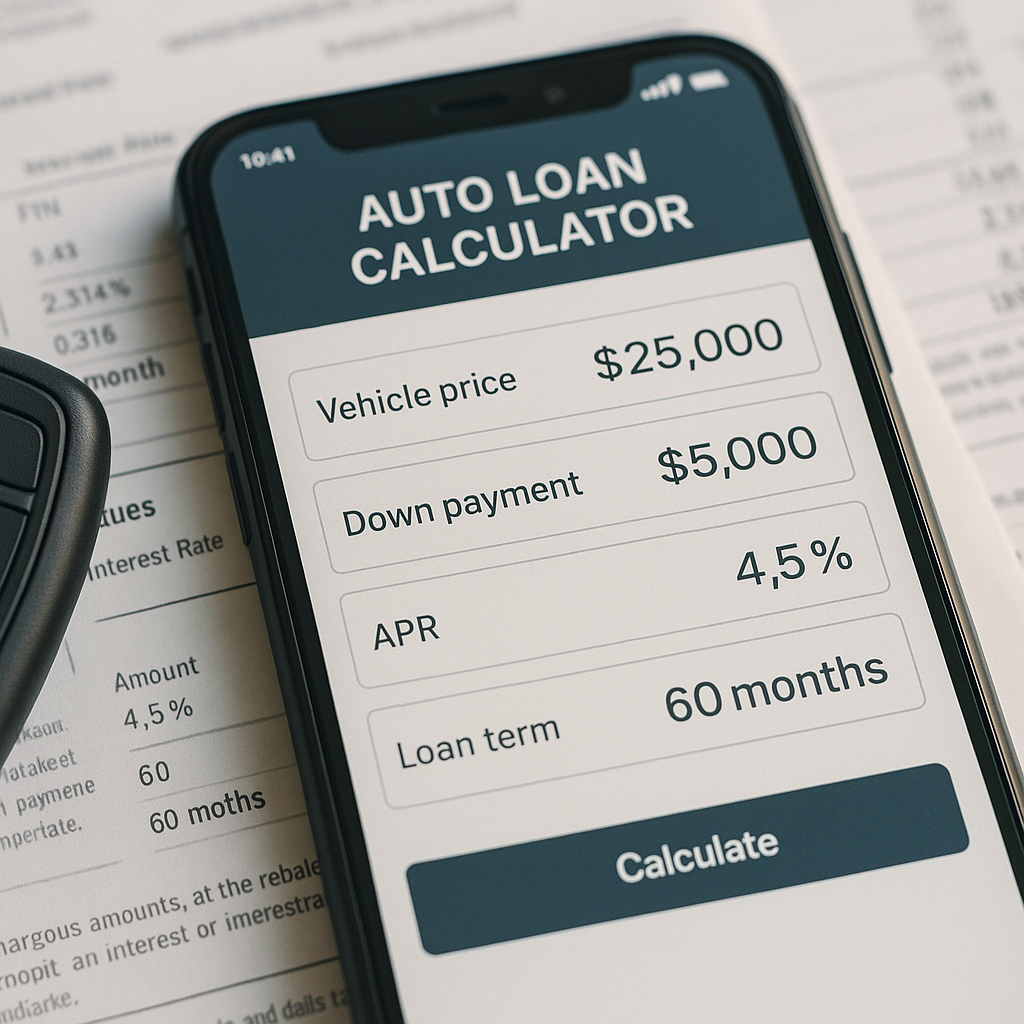In the last few decades, the evolution of automotive technology has been nothing short of remarkable. From the invention of the seat belt to self-driving cars, technological advancements are transforming the way we travel. But what does this mean for our future? Will automotive technology change the way we experience transportation? This article dives deep into how new innovations are revolutionizing our roads, our safety, and even our climate. Buckle up as we explore the future of transportation through the lens of automotive technology.
Table of contents
- The Role of Automotive Technology in Modern Transportation
- The Rise of Autonomous Vehicles
- Electric Vehicles: Driving Toward a Greener Future
- Connected Vehicles and the Internet of Things (IoT)
- Advanced Safety Features
- Smart Cities and Intelligent Infrastructure
- Artificial Intelligence in Automotive Technology
- The Impact on Jobs and the Economy
- Environmental Benefits and Challenges
- Challenges Facing Automotive Technology
- Public Perception and Trust Issues
- The Future of Personal Transportation
- Government Regulations and Policy
- Conclusion
- Frequently Asked Questions
The Role of Automotive Technology in Modern Transportation
Automotive technology is the driving force behind many recent changes in transportation. Innovations such as electric vehicles, autonomous driving, and vehicle connectivity are making our journeys safer, greener, and more convenient. But it’s not just about the vehicles themselves; the entire infrastructure around transportation is evolving to support these advancements. This interconnected system of cars, roads, and data is paving the way toward a future where transportation is almost seamless.
The Rise of Autonomous Vehicles
Imagine a car that drives itself, leaving you free to relax, work, or enjoy a good book. This isn’t science fiction; autonomous vehicles are already here, and they’re only getting better. Autonomous driving uses sensors, cameras, and complex algorithms to navigate roads and avoid obstacles. These vehicles promise to reduce accidents significantly, given that human error is one of the leading causes of crashes. Major companies, from Tesla to Waymo, are investing heavily in perfecting this technology, bringing us closer to a time when cars truly drive themselves.
Electric Vehicles: Driving Toward a Greener Future
Electric vehicles (EVs) are changing the way we think about energy and the environment. Instead of relying on gasoline, these cars are powered by electricity, reducing harmful emissions. With rising concerns over climate change, EVs offer a cleaner, more sustainable mode of transportation. Governments worldwide are supporting this transition by investing in charging infrastructure and offering incentives for EV purchases. It’s a movement toward a cleaner planet, one electric mile at a time.
Connected Vehicles and the Internet of Things (IoT)
The Internet of Things (IoT) has transformed many industries, and transportation is no exception. In a connected car, information flows seamlessly between the vehicle, other cars, and infrastructure. Imagine your car alerting you to upcoming traffic, finding the fastest route home, or even communicating with a stoplight to ensure a smooth journey. Connected vehicles make driving safer and more efficient, reducing congestion and giving us more control over our daily commutes.
Advanced Safety Features
Safety has always been a top priority in automotive technology. Modern cars come equipped with features like automatic braking, lane-keeping assistance, and adaptive cruise control, all designed to help prevent accidents. These technologies act as a second pair of eyes, alerting drivers to potential dangers. With each advancement, automotive safety moves closer to a future with fewer accidents and safer roads for everyone.
Smart Cities and Intelligent Infrastructure
To fully realize the potential of advanced automotive technology, we need smart cities equipped to handle it. Intelligent infrastructure includes smart traffic lights, connected roadways, and efficient public transit systems that work in harmony with autonomous and connected vehicles. These elements combine to create a city where traffic flows smoothly, pollution is reduced, and public transportation is more accessible. It’s not just about having smart cars; it’s about building smarter cities to support them.
Artificial Intelligence in Automotive Technology
Artificial intelligence (AI) is a powerful tool driving automotive innovation. From real-time decision-making in autonomous vehicles to enhancing user experiences through voice assistants, AI is central to modern automotive advancements. It allows vehicles to learn from their environments, making them “smarter” over time. As AI continues to evolve, we can expect vehicles that are more responsive, predictive, and personalized.
The Impact on Jobs and the Economy
With the rise of self-driving cars and automated systems, there are concerns about the impact on jobs in industries like trucking and public transit. However, new roles are also emerging in automotive tech, from software developers to AI specialists. The economy stands to benefit as well, with automotive technology creating jobs in tech development, infrastructure, and green energy.
Environmental Benefits and Challenges
Automotive technology brings environmental benefits, particularly with the shift to electric vehicles and reduced emissions. However, challenges remain, such as the environmental impact of battery production and the energy needed to support an all-electric vehicle fleet. Sustainable practices in mining and battery recycling will be essential to make the full environmental benefits a reality.
Challenges Facing Automotive Technology
No technology is without its challenges, and automotive tech is no exception. Autonomous driving requires vast amounts of data to function safely, raising concerns about data privacy and cybersecurity. Additionally, the high costs associated with these technologies make them less accessible to the average consumer, although prices are expected to drop as they become more mainstream.
Public Perception and Trust Issues
Public trust is crucial for the success of new automotive technologies. Many people feel uneasy about the idea of a car driving itself, with fears of malfunction or loss of control. Education and transparency from tech companies are key to helping the public feel comfortable with these advancements.
The Future of Personal Transportation
As automotive technology progresses, personal transportation will likely shift from car ownership to shared services. Imagine a future where instead of owning a car, you simply summon a vehicle whenever you need it. This change could reduce traffic congestion and make transportation more affordable and accessible.
Government Regulations and Policy
Government policies and regulations will play a major role in the development and deployment of automotive technology. From safety standards for autonomous vehicles to incentives for electric cars, policy decisions will shape the future of transportation. Striking the right balance between innovation and safety is critical to ensuring these technologies benefit everyone.
Conclusion
Automotive technology is driving us toward a future that’s more efficient, safer, and environmentally friendly. It’s an exciting journey, but one that requires careful planning, thoughtful regulation, and public trust. As these technologies continue to evolve, we can look forward to a world where transportation is not only a means to an end but an experience in itself. Whether it’s self-driving cars, electric vehicles, or connected infrastructure, automotive technology is reshaping our world, one mile at a time.
Frequently Asked Questions
1. How soon will autonomous vehicles become mainstream?
The timeline for widespread adoption of autonomous vehicles varies, but experts believe it could be within the next decade as technology and regulations advance.
2. Are electric vehicles more expensive to maintain?
Generally, electric vehicles have fewer moving parts than traditional cars, making them less costly to maintain over time. However, battery replacements can be expensive.
3. Can connected vehicles be hacked?
While cybersecurity measures are in place, no system is foolproof. Manufacturers continually update software to prevent hacking and ensure vehicle security.
4. Will automotive technology reduce traffic congestion?
Yes, technologies like autonomous driving and connected infrastructure aim to streamline traffic, which could significantly reduce congestion in urban areas.
5. What are the main environmental benefits of automotive technology?
Electric vehicles reduce greenhouse gas emissions, and autonomous driving can decrease fuel consumption, both contributing to a healthier planet.




1 thought on “How Automotive Technology is Shaping the Future of Transportation”
Your point of view caught my eye and was very interesting. Thanks. I have a question for you.